Nature Schooling- Books and Curriculum for Nature Loving Homeschoolers
Homeschooling Educational Philosophies
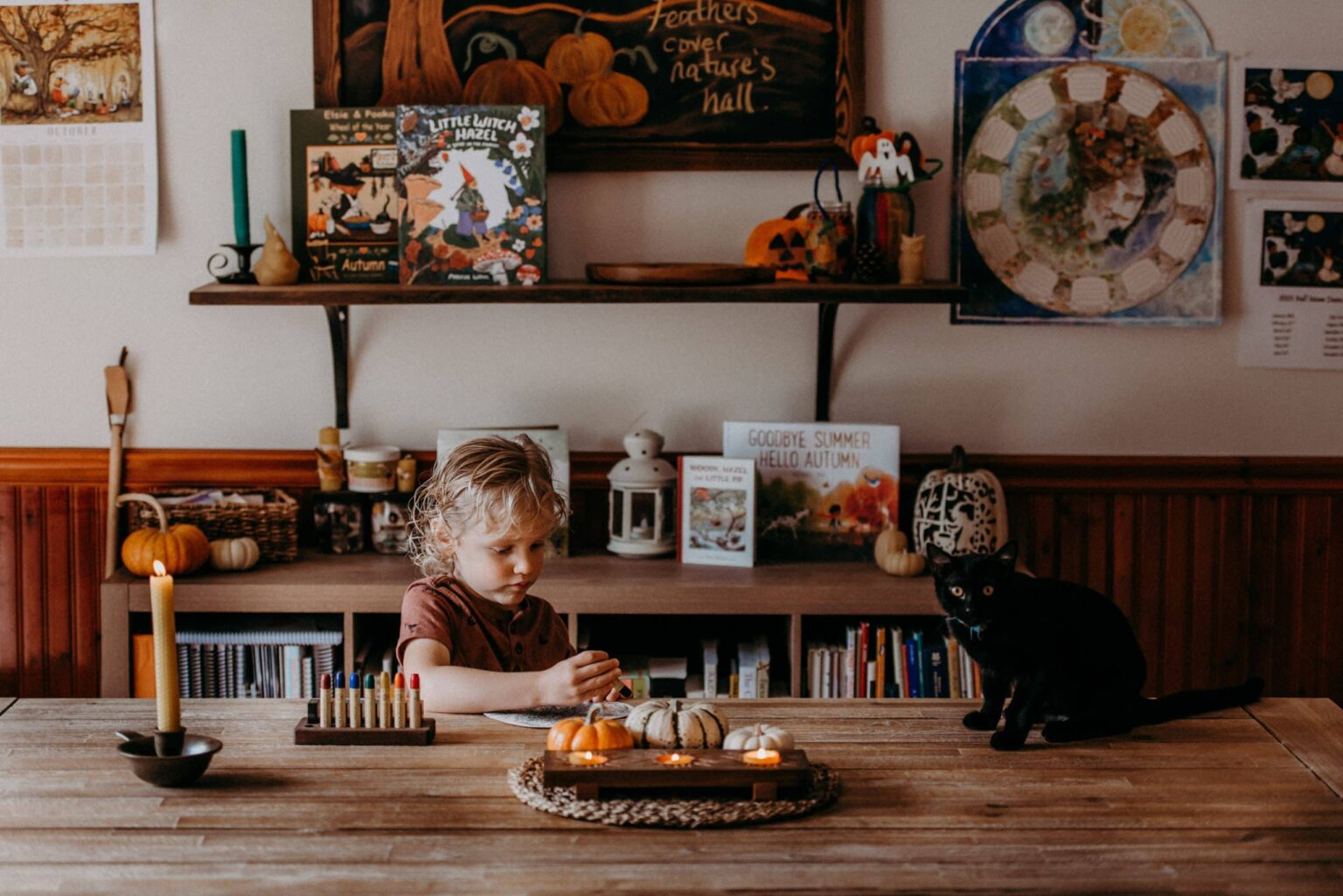
Homeschooling doesn’t have to look like conventional schooling, and it most certainly doesn’t have to be stressful! Whether you have always wanted to tuck into homeschooling, or Covid has left you with little choice, it can be a rewarding experience for both you and your children. And if you take a nature schooling approach, the experience may even leave you all with a deeper connection to the outdoors.
In order to avoid the stress, it’s important to have grace with yourself. Homeschooling can seem daunting. You may find yourself worrying about whether your kids are learning everything they should. The truth is, you do not need to plan out every moment of every day. You’ll find that flexibility is your new best friend, and allowing your child to lead the way a bit will increase their enthusiasm, and forge a lifelong learner as well. Relax, find the magic in the little things, and trust in the process.
While flexibility is necessary, the other side of the coin, rhythm, can be incredibly helpful, too. This is especially the case with younger children. Building a basic rhythm into their day lets them know what to expect next, prevents meltdowns, and can turn into a lovely family tradition. For instance, you may decide to dedicate Tuesday afternoons to a poetry teatime with a home-baked treat that they helped prepare. This becomes something you can all look forward to, builds community, and is a lovely way to destress and take a breather.
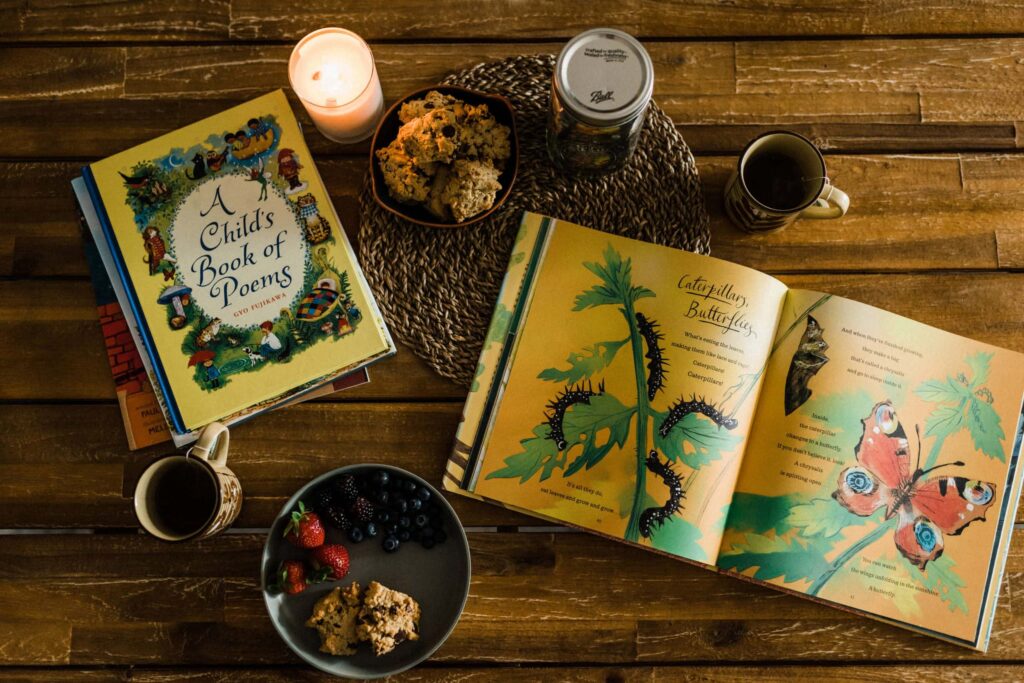
Increase the magic in your homeschooling experience by looking to nature for the most beautiful seasonal rhythms for inspiration. For instance, every year around the harvest moon we take the children on an annual lantern walk using lanterns that we make ourselves. This is especially magical for smaller children who aren’t used to being out after the sun goes down. The reverence that children exhibit during these little moments is really very beautiful. Remember, you’re making memories! Nature can form a lovely basis for your homeschooling, instilling an appreciation for the natural world in children from an early age, and capitalizing on all of the benefits that we know come from unstructured outdoor play.
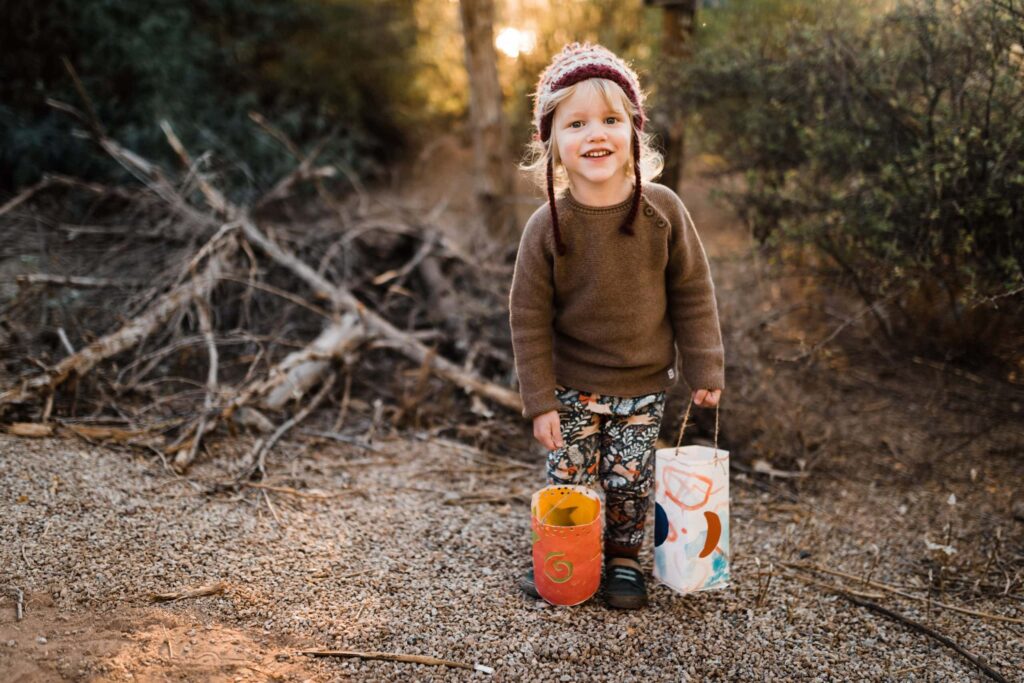
The following are educational philosophies that many nature schooling parents decide to incorporate into their homeschooling experience. One may resonate with you or your child(ren) more than another. It’s also very likely that if you have more than one child, they learn differently. The best approaches take the learner into consideration. Create something that takes into account the whole child, their strengths, weaknesses, and interests. You’ll find that a holistic and more eclectic approach will better meet everyone’s needs.
These are each of the basic approaches in a nutshell.
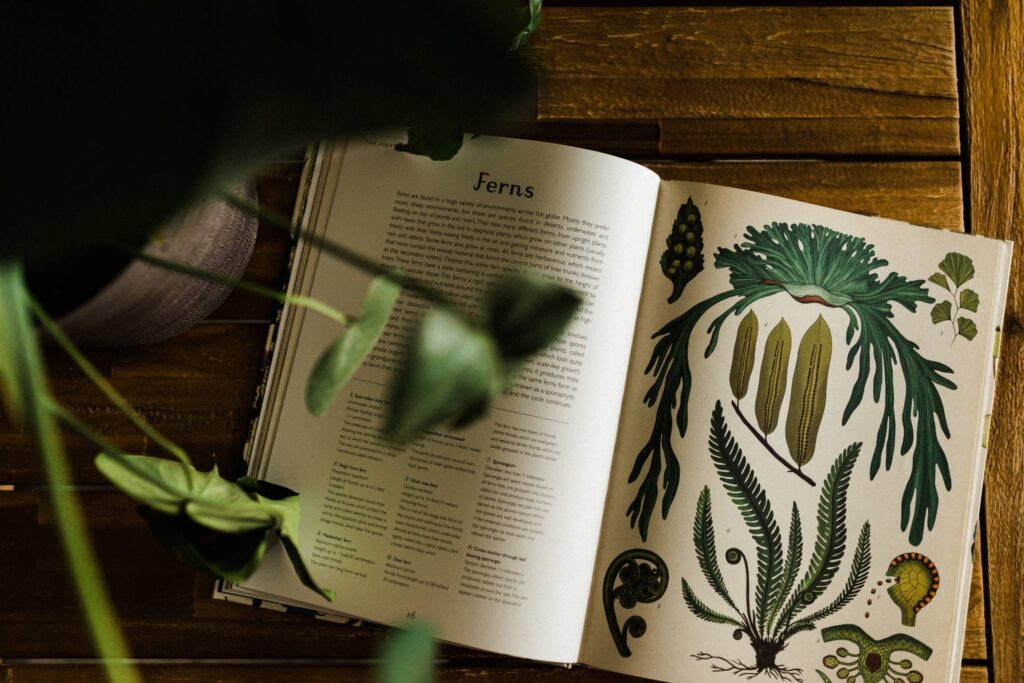
Waldorf
- created by Rudolf Steiner in 1919
- a heavy emphasis on arts and handwork (the arts train the will)
- human connection is key to learning
- rich stories told by a teacher/caregiver (usually with gestures, figures, and other simple storytelling manipulatives)
- emphasis on connecting with nature and the rhythm of seasons
- lessons are long and focus on one subject at a time in depth
- natural play materials
- holistic philosophy that seeks to educate the whole child: i.e., educating the hands, head, and heart
Charlotte Mason
- created by Charlotte Mason
- books do the teaching (living books written in narrative that present noble ideas are used in lieu of textbooks)
- emphasis on nature and time spent outdoors exploring
- habits train the will and good habits should be cultivated
- lessons are brief and switch from one subject to another
- emphasis on narration and writing
Montessori
- created by Maria Montessori in 1907
- beautiful materials do the teaching (the child has his or her “work”)
- instills independence in the child, as the materials allow for self-correction
- child led (they may choose their work and how long they will spend on it, though the teacher has already prepared the environment by choosing the materials that will be in the classroom that day)
Reggio Emilia
- created by Loris Malaguzzi in Reggio Emilia, Italy after WWII
- environment is viewed as the third teacher
- project based and child directed learning with the teacher as a collaborator in the learning process
- very hands on utilizing lots of loose parts and manipulatives to create
Classical
- dates back to the Middle Ages
- objective is teaching students how to learn
- learning occurs in three stages: 1) preparing, 2) grammar, 3) dialectic
- learning occurs in three stages: 1) grammar, 2) logic, 3) rhetoric
- five tools of learning: 1) reason, 2) record, 3) relate, 4) research, 5) rhetoric
Unit Studies
- all studies are centered around a particular theme
- a great way to teach to the whole child while capitalizing on their interests
- For example, honeybee unit may look like the following. Studying bee anatomy and the bee life cycle, creating a beehive, a field trip to visit a local beekeeper, experimentation to explore how pollen sticks to a bee’s body, planting a bee garden and observing bee activity while collecting data and making a chart to illustrate it, tasting honey and pollen, reading books about bees for literacy and language development.
Unschooling
- completely child led, the child’s interests and passion drive their learning
Wildschooling
- nature recognized as a fundamental human right and necessary for optimal human development
- respects the whole child, and like forest schooling, recognizes the need for children to take calculated risks to develop their autonomy
- nature-child relationship is dynamic
- emergent learning emphasized
- aligns with the rhythms of nature
Eclectic
- pick and choose what works for you and your child(ren) from any of the approaches
- some approaches may work well for one child, but another child may thrive in a different learning scenario
- the eclectic approach is very flexible, allowing you to choose what resonates with you and what works for your specific home situation
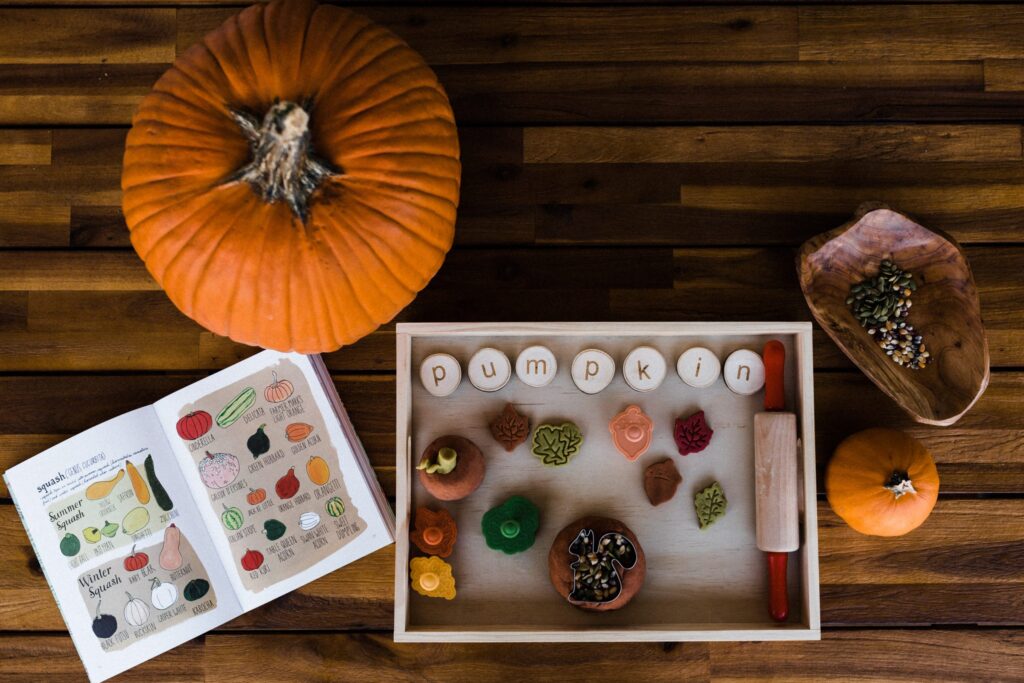
This Homeschool Style Quiz can help you decide what feels right for you.
On to my favorite nature inspired curricula! Some of these are pretty comprehensive and can absolutely be used alone. Or, if you’re like me, you may want to pick your favorite parts from each and create something wholly unique for your child and inspired by their own interests. Also, if you have children of multiple ages and you would rather not purchase a different curriculum for each of them, some of these can be adapted for mixed ages as well.
Nature Schooling Curriculum Round Up
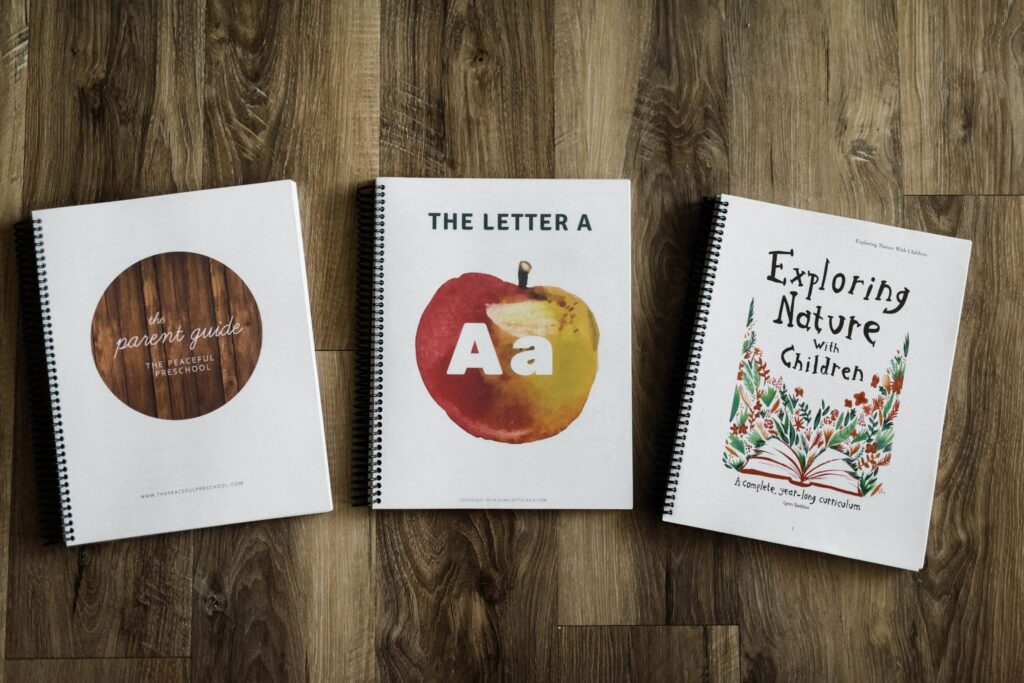
Exploring Nature With Children by Raising Little Shoots (Love this and would add it to any of the other curricula without hesitation. It’s a really beautiful way to celebrate and observe nature and how it changes with the seasons.)
The Habitat Schoolhouse (I’m in love with this curriculum and, for me, it fits perfectly with Exploring Nature With Children. The lessons are all based on nature and the outdoors.)
The Peaceful Press (Main curriculum, but there are also standalone guides that make a lovely addition to your nature study or a different main curriculum of your choosing. There is religious content, but not so much that this curriculum can’t be used in secular study.)
A Year of Tales (Literature focused preschool curriculum inspired by Beatrix Potter tales. There is a small religious component, but if that’s not your cup of tea, you can adapt it for more secular study.)
Blossom & Root (A main curriculum and book seeds, which are guides inspired by fantastic children’s nature books that make wonderful “unit” studies.)
Wild Math (Takes math outside using nature as concrete manipulatives.)
Rooted Childhood (Charlotte Mason inspired homeschool resources.)
Christopherus Homeschool (homeschool Waldorf Curriculum)
Compilation of Free Nature Based Curricula
Brave Writer (Not nature-inspired, but a great writing resource to complement another nature program.)
Tanglewood Hollow (Waldorf inspired nature-based curriculum and nature studies/materials.)
Wild + Free subscription (homeschooling resources and inspiration + homeschooler meet up groups)
Nature Lesson Guides from Firefly Nature School (great for “unit” studies)
Little Acorn Learning (a wealth of Waldorf homeschooling resources)
My own Pinterest board is also a great resource for early childhood education. I’m constantly adding nature resources and DIY’s on here.
Favorite Etsy Shops for Nature Homeschool Printables
Chickie and Roo (lovely printables to complement your nature-based learning)
Red Oak Adventures (outdoor adventure gear for your entire family)
Brave Grown Home (nature guides, three-part cards, and other printables)
Fiddlesticks Ed (lovely hand illustrated watercolor nature-based educational resources)
Brilliant Bungalow (homeschool curriculum and resources with beautiful homeschool bundles)
Twig and Moth (nature inspired illustrations and educational materials)
Steph Hathaway Designs (beautiful unit study bundles)
The Little Oak Learning (very Waldorfy feeling, focusing on storytelling (meet the Hiddles) and rhythms in a nature)
Kindergarten Toolkit (minimalist tools for preschoolers and Kindergarten)
***Many of these shops participate in seasonal bundles with other shops on this list!
Favorite Shops for Natural Toys
If you want to go all out with your homeschooling environment and create an atmosphere that will ultimately nurture your whole child, educating their head, hands, and heart, these shops have everything you need. Remember though, less is more (the book Simplicity Parenting will tell you all about this). Higher quality materials that encourage open-ended and imaginative play will not only physically last a lot longer, they also have more staying power emotionally and developmentally for your child. Their play becomes much more creative and sophisticated.
I feel I should take a moment here to say that it’s also okay to let your child “be bored.” Parents aren’t put on this planet to entertain their children. We’re here to create enriched and wholesome environments filled with love, so that our children thrive, become increasingly independent, lifelong and enthusiastic learners, divergent thinkers, and, ultimately, actualized human beings.
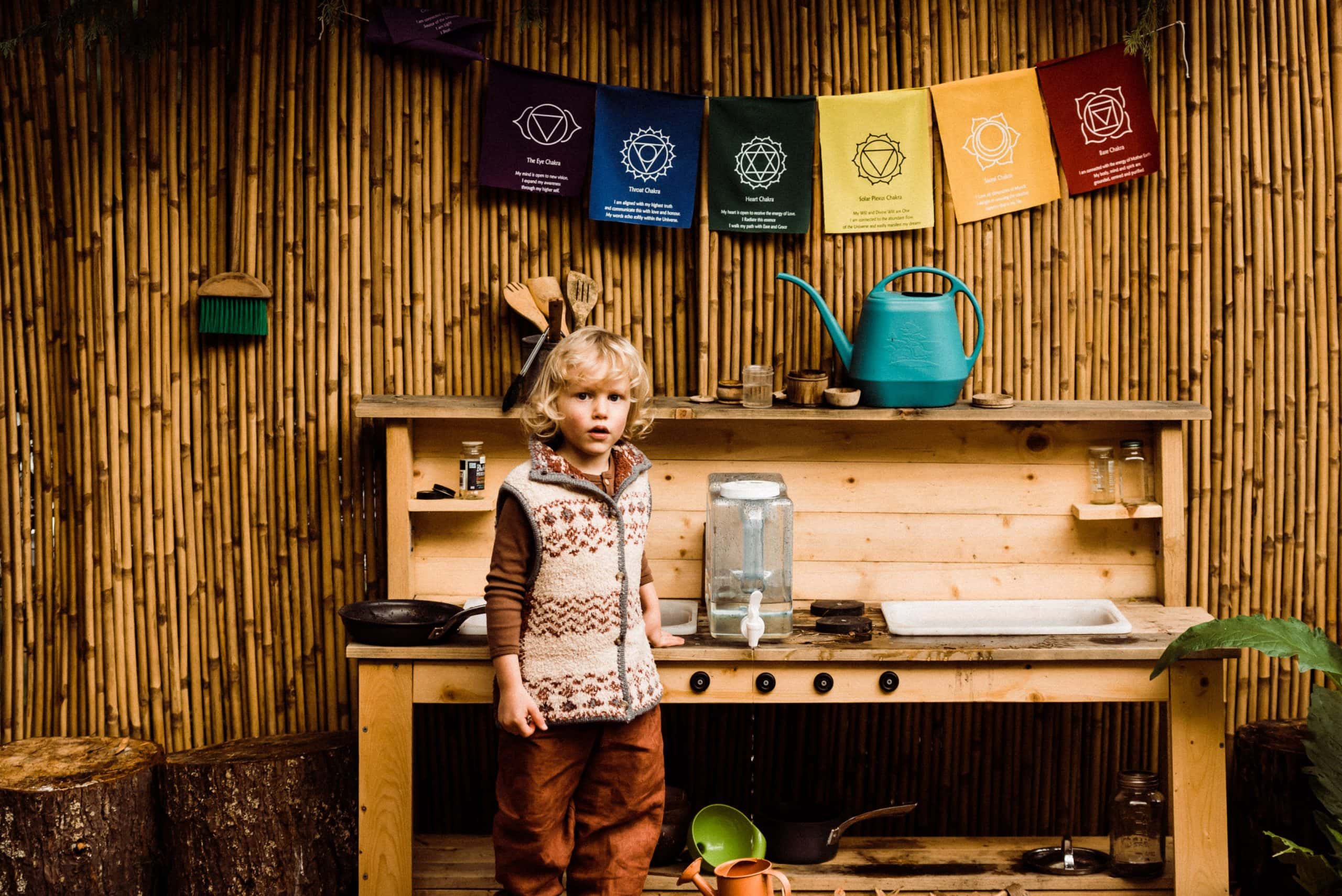
WoodNPoppy (maker of amazing mud kitchens like the one above!)
Nestling + Nook (one of my very favorites)
Pickwick & Sprout (books and gorgeous toys/homeschool materials for early childhood)
Mirus Toys (my favorite Etsy toy shop with loads of nature inspired Waldorf and Montessori educational toys, from puzzles to play dough stamps (animal tracks!) to matching, sorting, and manipulatives)
Geodessee Toys (Montessori felt boards and three-part cards)
Wiwiurka (wooden climbing equipment and toys for active play)
Dimokl Wooden Toys (lovely tree blocks and other wooden toys for when you don’t want to make them yourself)
Mamuma Bird (More lovely wooden objects, including puzzles for little ones. We purchased a beautiful wooden leaf puzzle from here.
All Alive (nature inspired Waldorf and Montessori toys)
Sea of Grass Studio (gorgeous handmade natural art supplies, such as beeswax crayons)
Magic Stones Art Shop (story stones for early literacy to bring your child’s favorite nature books to life)
Favorite Nature Schooling Books
Finally, if you’re looking for beautiful nature books to build your child(ren)’s library, books to complement any of the above curriculum (or to create your very own unique curriculum), books to get cozy with on rainy days while drying out after tramping through wet forests, or books for your own parenting/teaching journey, they’re on this list.
A List of Beautiful Children’s Picture Books About Nature
Nature Anatomy: The Curious Parts and Pieces of the Natural World

The Story of the Root Children: Mini Edition
The Wondrous Workings of Planet Earth: Understanding Our World and Its Ecosystems
Foraging with Kids: 52 Wild and Free Edibles to Enjoy With Your Children
Moon: A Peek-Through Picture Book
Nature’s Day: Discover the world of wonder on your doorstep
Sing a Song of Seasons: A Nature Poem for Each Day of the Year
The Organic Artist for Kids: A DIY Guide to Making Your Own Eco-Friendly Art Supplies from Nature
Up in the Garden and Down in the Dirt
Botanicum: Welcome to the Museum
Animalium: Welcome to the Museum
A Kid’s Herb Book: For Children of All Ages
Outside Your Window: A First Book of Nature
All About the Bees
About Trees
The Magic and Mystery of Trees
Seeds and Trees: A children’s book about the power of words
For Very Tiny Ones
Adventures with Barefoot Critters
Counting with Barefoot Critters
For Parents/Caregivers
Play The Forest School Way: Woodland Games and Crafts for Adventurous Kids
A Year of Forest School: Outdoor Play and Skill-building Fun for Every Season
Forest School Adventure: Outdoor Skills and Play for Children
How to Raise a Wild Child: The Art and Science of Falling in Love with Nature
The Call of the Wild and Free: Reclaiming Wonder in Your Child’s Education
The Brave Learner: Finding Everyday Magic in Homeschool, Learning, and Life
The Read-Aloud Family: Making Meaningful and Lasting Connections with Your Kids

Waldorf Books for Caregivers of the Very Young
Heaven on Earth: A Handbook for Parents of Young Children
Beyond the Rainbow Bridge: Nurturing Our Children from Birth to Seven
Online Class for the Yogi Parent
Parenting through the Chakras (I have learned so much from the woman who created this course. Whether you’re a yogi parent or not, there is a lot to gain from this woman’s calming presence and immense knowledge about child development.)
That’s it! I hope this post serves as a handy set of field notes and gives your homeschooling journey some direction. Or, at the very least, has inspired you to go out and create something that educates your child and feeds your own soul, too. Remember, there are communities of like-minded parents out there, so you don’t have to go it alone! And if I’ve missed something on this list, please comment with it below! I want this to be a really comprehensive resource and that means I’ll be continuously updating it with all the suggestions I receive, as well as new treasures that I find during my own nature schooling journey.
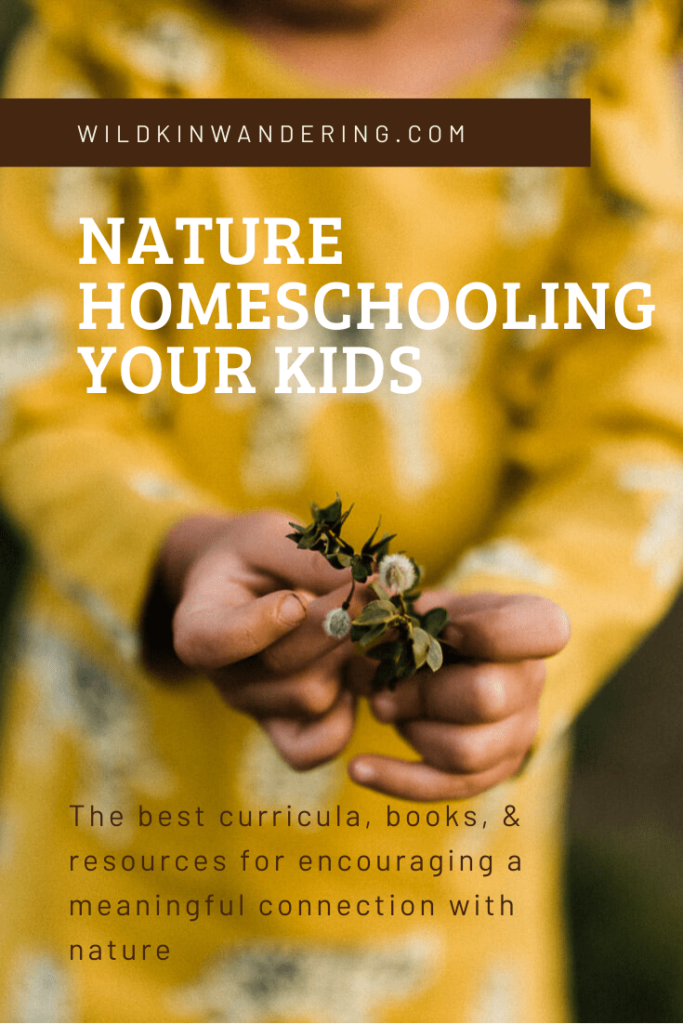
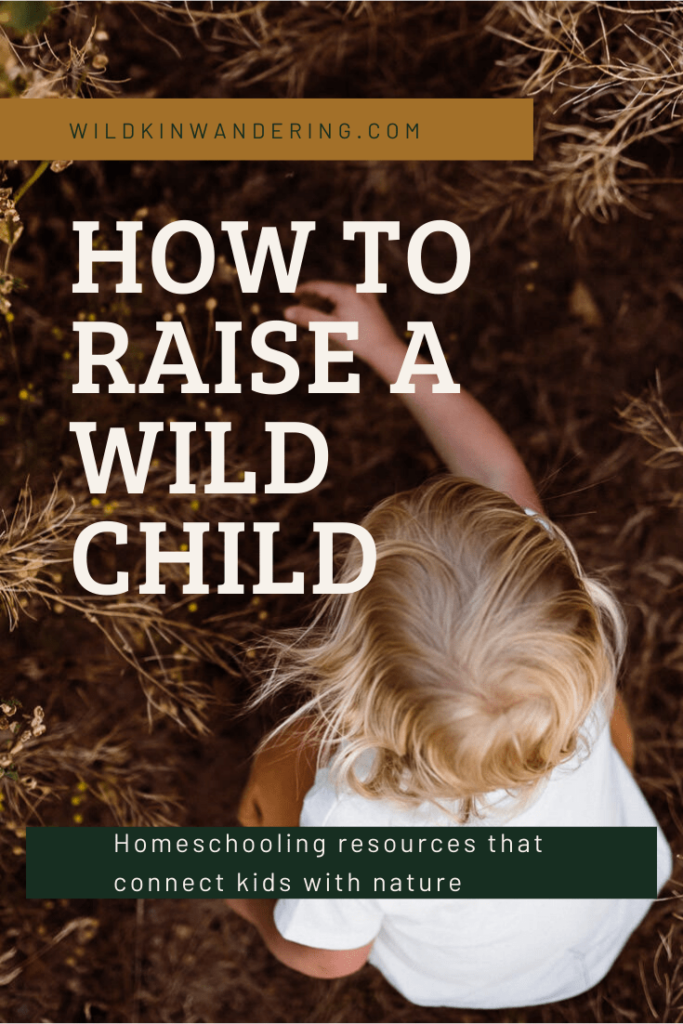

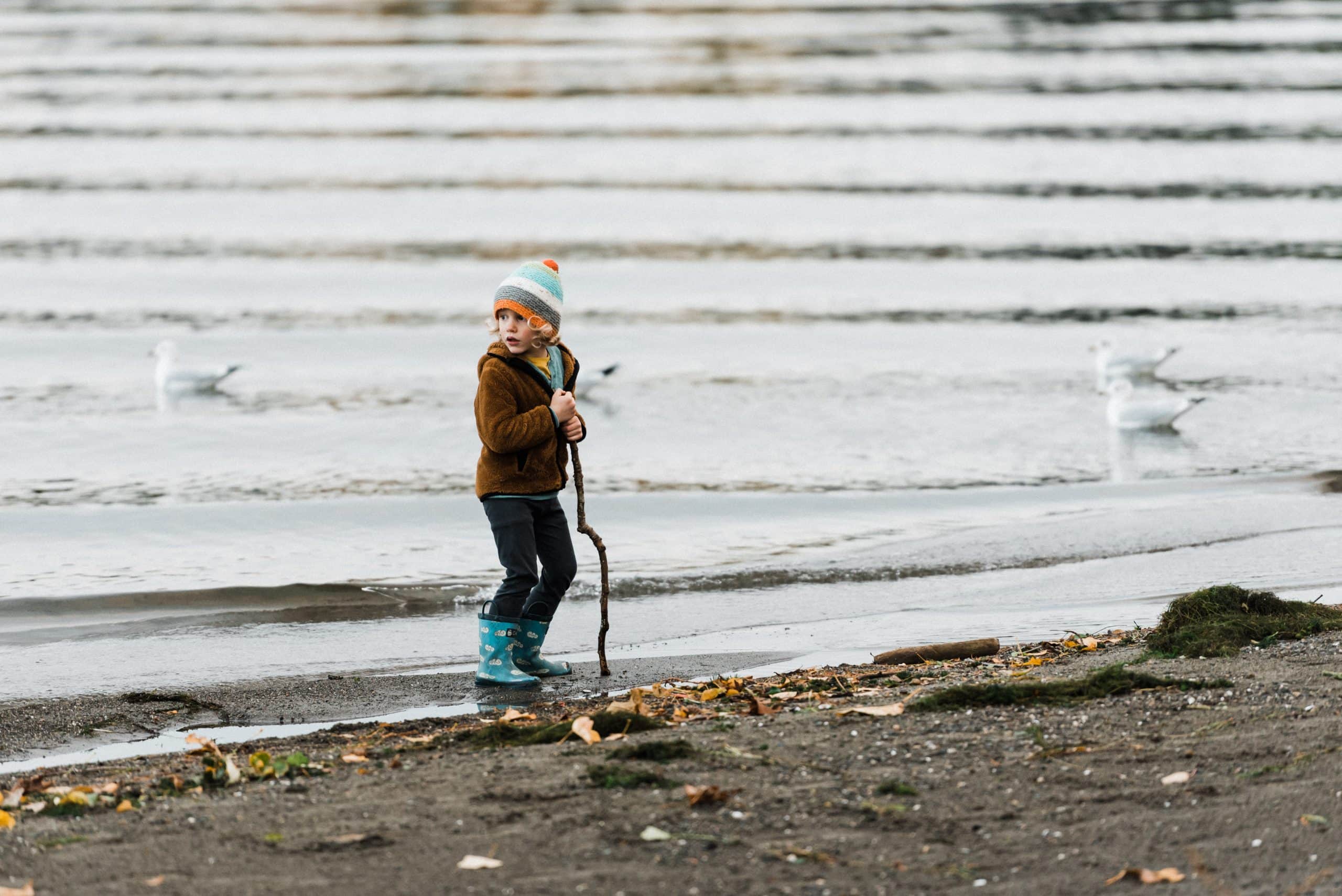
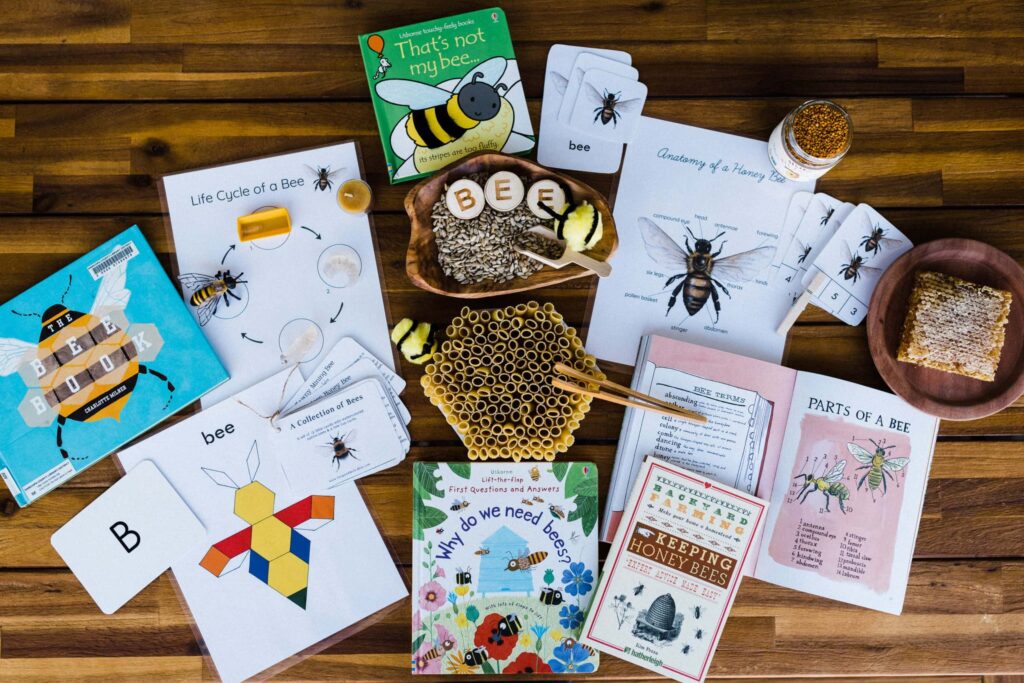
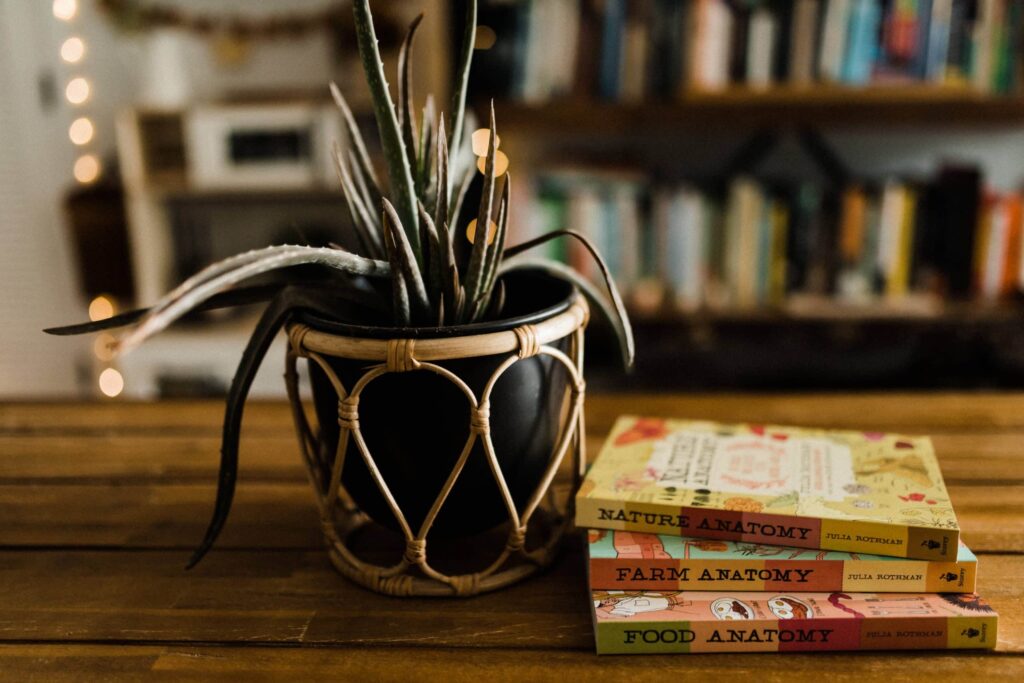
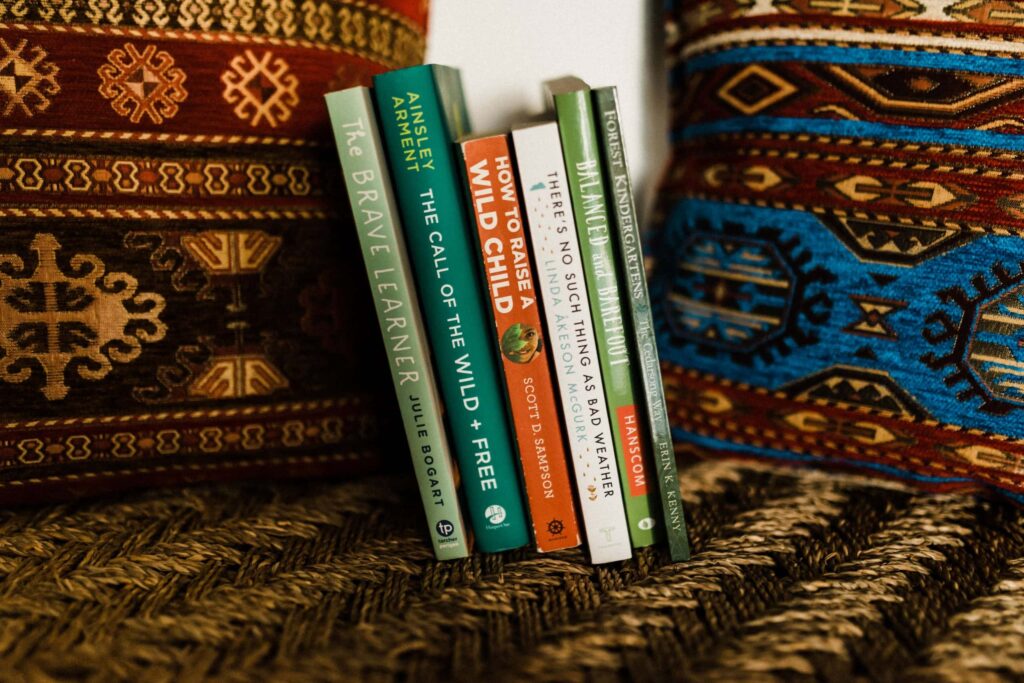
What a lovely and comprehensive list of resources!
thank you! so very glad you enjoyed it 🙂
Thank you for sharing such an extensive listing of resources and ideas for outdoor schooling. It is my passion to continue to enrich minds with the connection of nature’s wisdom.
Thk u
Kay
Montessorian/Meadows childcare
Earlychildhood Intervention specialist
Are any of the programs you suggested geared towards middle schoolers?
Exploring Nature With Children is very multi-age friendly so you can absolutely use it with middle schoolers, as well as those that are younger (perfect if you have siblings studying together). You can check out their free downloads and decide whether it’s a good fit for your family. Older children will also benefit from nature journaling, which is a really lovely addition to any nature study curriculum, and such a wonderful keepsake for children to have year after year. There are lots of resources for nature journaling on Pinterest, but Julia Rothman’s books provide beautiful inspiration for this activity. Brave Writer would also be a good curriculum to check out, as children are honing their writing skills in Middle School in preparation for High School. And Firefly Nature School guides are excellent for digging deeper into more specific nature studies.
What a well-done post with so many resources, will share! I’d love to add Wildschooling as an educational philosophy, a nature-bonded homeschooling framework. Thank you again for this post, we need more nature-connected content!
Thank you so much for reading, and for the additional recommendation! Adding it to the list!
Thank you for this list!
Of course! I really hope it helps ☺️
What math curriculum do you recommend? I have kindergarten, middle school and high school aged kiddos. Thanks!
I love Wild Math https://www.wildmathcurriculum.com/ although it only goes up to fifth grade. Beyond that, I’m in love with the Waldorf curriculum (math included) 💛
This is everything I was looking for whilst gearing up for our next year of homeschooling! Thank you so much for your research and time spent on the subject!
I’m so glad you found it helpful! I really loved researching it and putting it together 🌿
Hi Jackie,
I just found your post and I love all the information. I have a 3.5 and 1.5 y.o. at home and would love to find a group of nature-based homeschool families around us with kids of similar ages. We live in North Whidbey Island WA. Do you have any suggestions?
Thank you very much!
Ps. I took the Quizz and results were unschooled so I am starting to research more and more about it now.
Hi there! I would definitely check out Wild and Free (https://www.bewildandfree.org/)! It’s a lovely homeschool community and the members organize meetups in various locations. Fidalgo Nature School also has some early childhood + caregiver programs up in Deception Pass State Park that you may want to check out https://www.fidalgonatureschool.com/small-wonders I’m currently on the Southend!